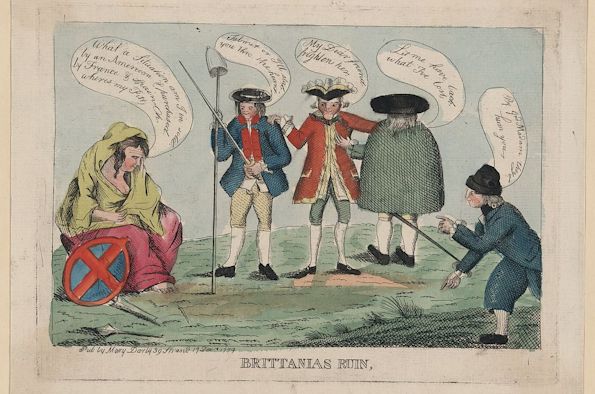
PGR Workshop: New Perspectives on the Age of Revolutions
- Sophie Jones
- Suitable for: Anybody interested in the topic.
- Admission: Admission is free, please email Sophie Jones to register: hssjone8@liverpool.ac.uk
Add this event to my calendar
Click on "Create a calendar file" and your browser will download a .ics file for this event.
Microsoft Outlook: Download the file, double-click it to open it in Outlook, then click on "Save & Close" to save it to your calendar. If that doesn't work go into Outlook, click on the File tab, then on Open & Export, then Open Calendar. Select your .ics file then click on "Save & Close".
Google Calendar: download the file, then go into your calendar. On the left where it says "Other calendars" click on the arrow icon and then click on Import calendar. Click on Browse and select the .ics file, then click on Import.
Apple Calendar: The file may open automatically with an option to save it to your calendar. If not, download the file, then you can either drag it to Calendar or import the file by going to File >Import > Import and choosing the .ics file.
Andy Cabot, (University of Paris – Diderot (Paris VII) :
Empires and slavery: Debating and making abolition in the Age of Revolution, 1794-1808
This presentation will focus on the question of slavery in a global perspective. Most national histories have their ownabolitionist heroes (Clarkson and Wilberforce in England, Victor Schoelcher in France, William Lloyd Garrison and Frederick Douglass in the United States) and their own abolitionist timelines. These perspectives often cloud the inherently global nature of the abolitionist process. As slavery and empires both relied on transcontinental and hemispheric wide structures in the late eighteenth century, the abolitionist project had to adapt and adopt the boundless worldviews of their adversaries to gain influence and win political battles. This struggle of imagination between two radically different "moral capitals" reached its peak during the Age of Revolution. This presentation will try here to delineate some its major characteristics.
Rosanne Waine, University of Southampton:
The Emergence of Republican Cottons: Refashioning Patriotic Display in the American Home
Following the close of the American Revolution, calico printers in Britain and France vied with one another to produce high-fashion patriotic textiles which would complement the evolving national character of the citizen consumers in the Early Republic. Using objects sourced from Colonial Williamsburg, the Winterthur Museum and the Smithsonian Institution, this paper traverses a brief period of iconographic experimentation and commercial opportunism in the design of patriotic textiles for use in the post-Revolutionary American home. However, rather than framing these objects as merely ‘commemorative’ textile pieces, this paper argues that the proliferation of European-made Republican patterns and their use within the American interior is evidence of a transatlantic, self-conscious refashioning performed by both the manufacturers and consumers of patriotic goods in the Atlantic region.
Sophie Jones (University of Liverpool):
Purchase, Consumption and Display: Constructing Identity in Eighteenth-Century New York
The eighteenth century was a period of transformation in colonial New York: the city arguably experienced a ‘consumer revolution’ as the colonial marketplace became flooded with British imports; meanwhile extensive urban improvement prompted large-scale social and cultural change. Focusing upon the experiences of consumers in mid-eighteenth century urban New York City, this paper explores the ways in which these new material goods were used, consumed and displayed by colonists to construct emerging ideas of a British-Atlantic identity.
